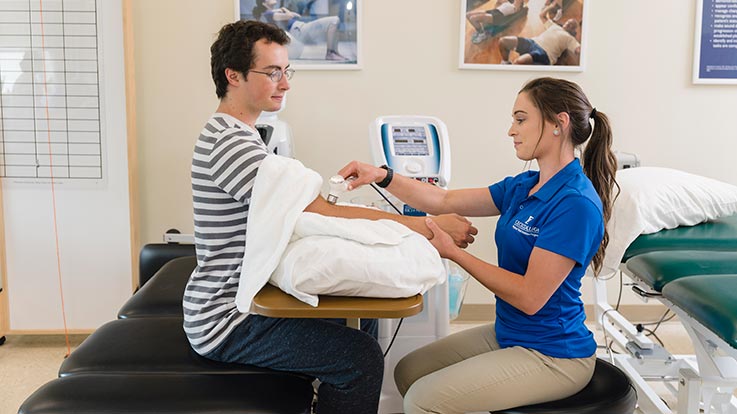
More Than Money
-
Professional respect
-
Helping others
-
Job security
How You Could Become a Physical Therapy Professional
What Can You Expect To Learn From A Physical Therapy School
-
Define the scope of practice for PTs and PTAs.
-
Describe basic concepts related to the health care delivery system. This includes the role of other health care providers and facilities.
-
Identify principles of levels of authority and responsibility.
-
Understanding of and applying wellness and disease concepts.
-
Recognize and respond to emergency situations.
-
Knowledge of blood-borne diseases, including AIDS.
-
Knowledge of disease processes and health conditions encountered in physical therapy practice.
-
Anatomical structure, function, and dysfunction of the human body. How it relates to the practice of physical therapy.
-
Assist the physical therapist with therapeutic procedural interventions. Interpret and apply a physical therapist’s plan of care.
-
Use of assistive/supportive devices and specialized equipment.
-
Competent patient progression within the physical therapist’s plan of care.
-
Competency inappropriate documentation of physical therapy treatment.
-
Ethical and legal practice as a physical therapist assistant. Demonstrate appropriate communication skills with patients, families, and other healthcare staff.
-
Cultural competence in verbal and non-verbal communication.
-
Respond to the patient’s needs as reflected in the Patient’s Bill of Rights.
-
Teach other health care providers, patients, and families to perform selected treatment procedures and functional activities.
-
Identify and respond to barriers to a patient’s participation in their life role.
-
Commitment to lifelong learning and career development.

